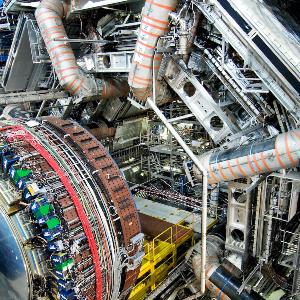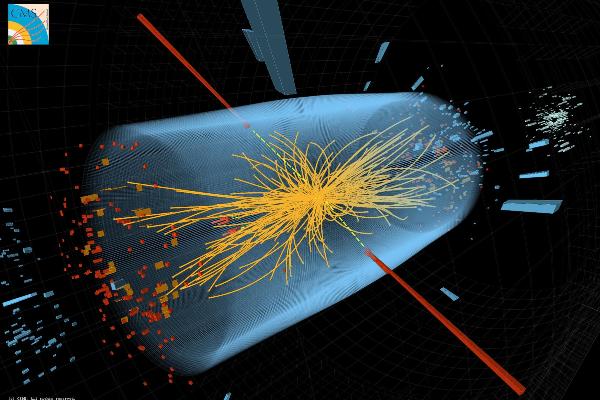
Elementary Particle Physics
The fundamental structure of matter is described by a set of elegant equations: the standard model of particle physics.
The model is based on symmetry arguments and describes the known part of the Universe with (the help of) a few basic building blocks: the elementary particles and their interactions. To date, all observations at accelerators have been explained successfully with this model and numerous discoveries have been predicted accurately. However, the model describes only four percent of the energy density of the Universe and leaves further fundamental questions unanswered.

Within (the framework of) our research we try to answer these questions: What is the origin of our Universe and all its matter and how will it evolve further? Why are the forces of nature so differently strong? What exactly are the unknown 96 percent of our Universe? Are there, on energy scales that can be reached today, any indications of new particles and interactions that would bring us closer to an overall picture of the Universe?
In theoretical particle physics we develop mathematical methods and tools for precise calculations within the Standard Model and models of possible extensions. In addition, we are investigating phenomenological studies on measurements at current and future accelerator experiments. Among other things, we are active in the field of physics with heavy quarks, effective field theories, and extensions of the Standard Model.
In experimental particle physics, we investigate hardly measurable effects with powerful detectors, as in the ATLAS experiment at the Large Hadron Collider of the European Organization for Nuclear Research CERN or in the Belle II experiment at the SuperKEKB accelerator in Japan.
We develop and build state-of-the-art detector components for the largest and most complex man-made instruments. For evaluation, we design IT systems, analyses, and algorithms capable of searching in huge amounts of data from current experiments for signs of new physics.
Professors
Prof. Dr. Otmar Biebel
Experimental research of elementary particle characteristics and their interaction / Particle verification detectors
Prof. Dr. Gerhard Buchalla
Theory of strong and electroweak interaction / Physics of heavy quarks, flavour physics, CP violation / Rare degeneration of K and B mesons
Prof. Dr. Thomas Kuhr
Measurements of differences between matter & anti-matter / Measurements of rare decays of particles with heavy quarks / Software development for data analysis & detector construction
Prof. Dr. Dieter Lüst
String theory / Supersymmetry / Gauge theories and gravitation
Prof. Dr. Ivo Sachs
Quantum field theory, supersymmetry / Conformed field theory / String field theory with applications for cosmology and black holes
